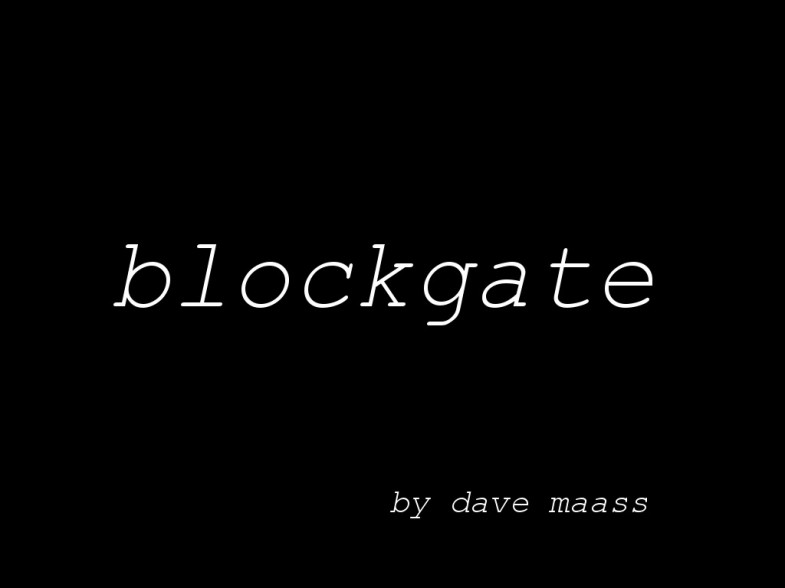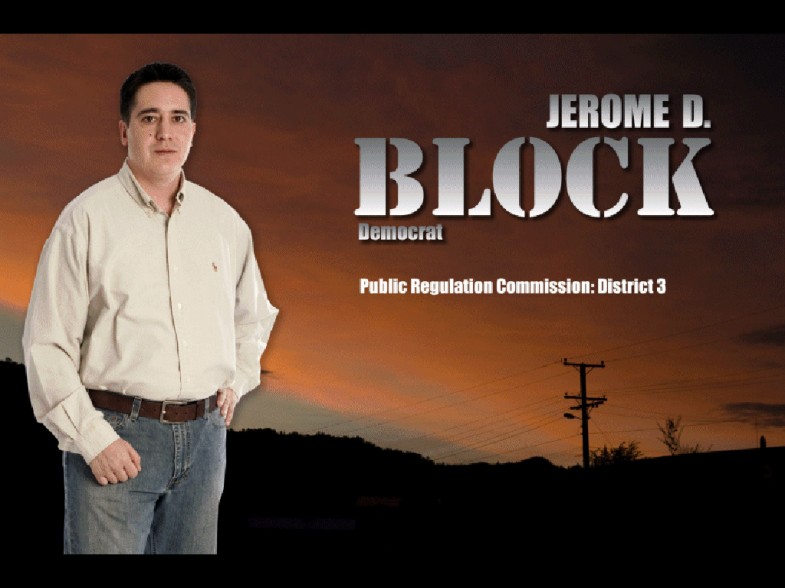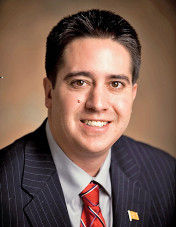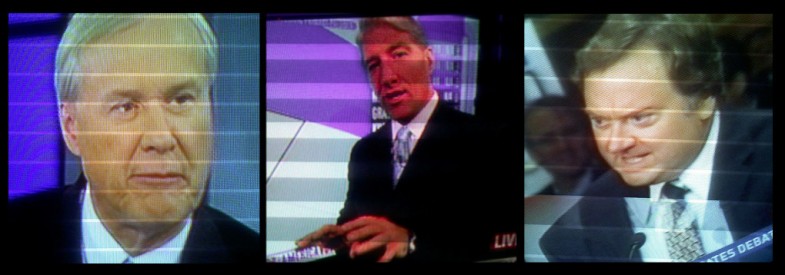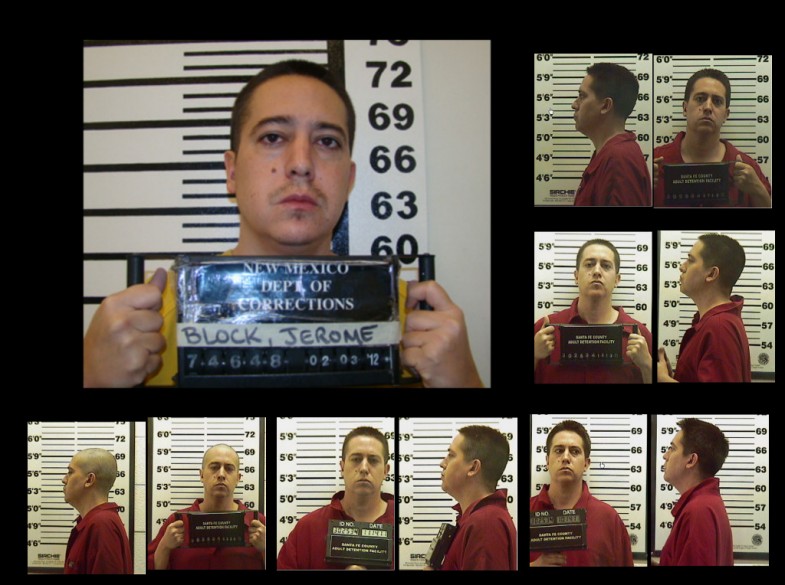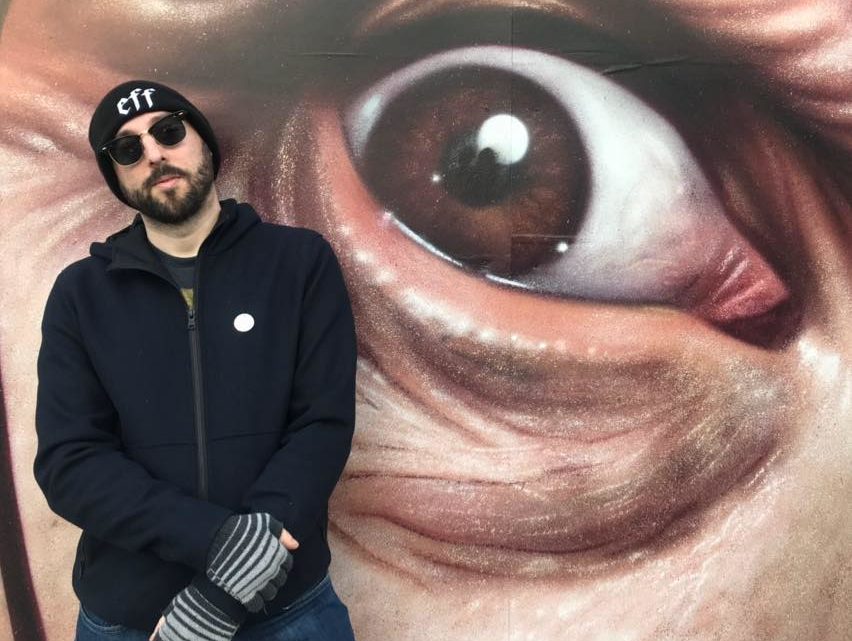Â
Blockgate, by Dave Maass
As performed at San Diego Public Library’s “Your Democracy,” Oct. 12, 2012, and So Say We All’s VAMP Night, “Monsters & Tyrants,” Oct. 25, 2012
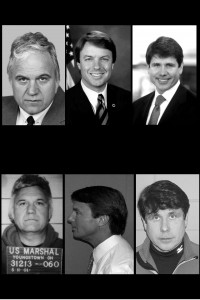 When we think of political scoundrels, names like James Traficant and John Edwards and Rod Blagojevich come to mind, incredible politicians with incredible haircuts who committed incredible crimes against the public trust. And we wonder: When did they go astray?
When we think of political scoundrels, names like James Traficant and John Edwards and Rod Blagojevich come to mind, incredible politicians with incredible haircuts who committed incredible crimes against the public trust. And we wonder: When did they go astray?
But we’re assuming they were on the right path to begin with. We like to believe that these politicians set out on their journeys with backpacks full of good intentions, that a sense of duty to the greater good is driving them towards positions of leadership. Then, when the indictments are unsealed and the resignations are announced at teary press conferences, we talk in religious metaphors. We say they have fallen from grace.
But what about the politicians that are no good from the get go? What about the politicians whose narrative arcs aren’t a rise and fall, but more of a slither from one hole to the next?
You’ll have never heard of Jerome Block Jr. or the office he was running for in 2008, but if there was an election today for the biggest scumbag in the history of American democracy, his name is the one I’d write in.
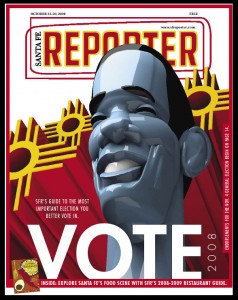 I’d taken the job with the Santa Fe Reporter for the express purpose of covering the 2008 presidential election from a swing state. I wasn’t disappointed: New Mexico was as purple as a bruised plum.
I’d taken the job with the Santa Fe Reporter for the express purpose of covering the 2008 presidential election from a swing state. I wasn’t disappointed: New Mexico was as purple as a bruised plum.
It seemed like Obama and Michelle and Hillary and Bill and John McCain and whoever his wife is were in town every other day. Campaign money was flooding in because we had two out of three Congressional seats up for grabs and the first open Senate race in a quarter of a century. Then there was our governor–the lovable, huggable, blue-jeans-and-bola-tie Bill Richardson–who was running for president. He somehow managed to stay in the contest through the Iowa and New Hampshire primaries. Even after he bowed out, (CUE: A7 – RICHARDSON2) Richardson squeezed his potential endorsement for every ounce of political capital.
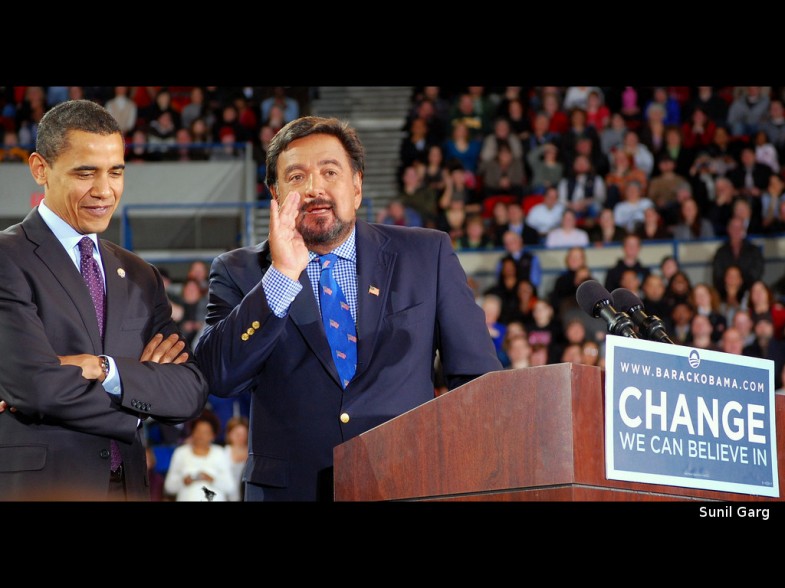
 The entire press corps was so high on the top-of-the-ticket campaigns, that none of us bothered to vet the candidates for the Public Regulation Commission.
The entire press corps was so high on the top-of-the-ticket campaigns, that none of us bothered to vet the candidates for the Public Regulation Commission.
The Public Regulation Commission is an obscure, but enormously powerful agency whose technocratic commissioners regulate everything under the New Mexico sun–corporations, utilities, insurance companies, the upkeep of pipelines, the transportation of cadavers. You name it, they regulate it. To be an effective 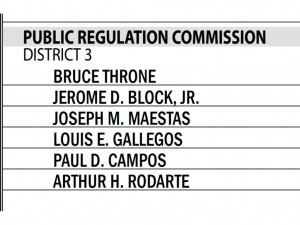 commissioner, you have to be both number-cruncher and consumer advocate, with a working knowledge of law, economics and science.
commissioner, you have to be both number-cruncher and consumer advocate, with a working knowledge of law, economics and science.
There were five guys in the Democratic primary who met those qualifications to some extent or another. There was one guy who met none of them:
No one took Block seriously. During early appearances on the campaign trail, he came across as a dolt with no practical experience in civic affairs, a candidate who always talked like he had too much spit in his mouth and not enough blood flow in his skull. The only thing he had going for him was name recognition. His father, also named Jerome Block, had previously held the job. His grandfather, Johnny Block, had been mayor of Espanola..
 The six-way race split the votes so thin that Block won the primary with only 23 percent of the vote. The Republicans hadn’t bothered to put up a challenger because the district leaned so heavily Democratic. It looked like the job was Block’s by default–until the Green Party nominated a candidate.
The six-way race split the votes so thin that Block won the primary with only 23 percent of the vote. The Republicans hadn’t bothered to put up a challenger because the district leaned so heavily Democratic. It looked like the job was Block’s by default–until the Green Party nominated a candidate.
That meant the game was on again.
I started by taking a second look at a survey the candidates had filled out many months earlier for the daily newspaper. One of the questions asked about prior arrests and conviction. Block admitted he’d been arrested on a drunk-driving charge, but he claimed the court found him “not guilty.â€
Something didn’t smell right, and I guessed it was Block’s breath. So I dove right into the court records.
The night he was arrested, Block had blown more than double the legal limit. He’d confessed to police that he’d been drinking beer and Long Island Ice Tea. But in New Mexico, prosecutors only have six months to try DUI cases. Jerome Block Jr.’s lawyer stalled until the clock ran out. The charges were dropped.
I kept digging. I traced an incomplete jail booking record in the sheriff’s database to a forgotten file buried in the municipal court archives. In scribbled police handwriting, there was a long narrative about how Jerome Block Jr. and a friend were caught speeding away, ludicrously drunk, from a domestic violence scene. Block had pleaded guilty and, since he hadn’t disclosed it on that newspaper survey, that made Jerome Block Jr a big, fat liar.
I kept pulling at the thread and unraveled another criminal charge for “disorderly conduct.†During Albuquerque’s most popular street fair, Jerome Block Jr. was busted for peeing in public on a bush. And not just any bush–a bush on police station property.
Block, I realized, was a special kind of moron who deserved a special kind of scrutiny.
So, I headed over to family court.
Nothing quite feels like a violation of privacy as reading through a politician’s family-court records. I felt pretty gross for doing it, but not nearly as disgusting as Block turned out to be. See, the records showed that Jerome Block Jr. was a deadbeat dad. He’d refused to pay child support for years. Perhaps even worse, is that he’d failed to appear at every single mediation hearing.
So I shouldn’t have been surprised when Jerome Block Jr. failed to appear for our interview.
I broke the story. In an election cycle that had so far been dominated by Internet memes and foot-in-mouth moments, suddenly the press had a real villain. The media invaded Jerome Block Jr.’s life like feral pigs on rural farm land. We tore up everything.
Block had defaulted on bank loans. He lied about his campaign endorsements. What he’d tried to pass off as a degree in business, was actually just a certificate from a 16-day training program. He’d had a restraining order against him for allegedly threatening to cut an enemy. He ditched out on debates. He made illegal campaign expenditures. He couldn’t even spell “Public Regulation Commissioner†correctly on his website.
It got to the point that we were dropping bombshells on Jerome Block Jr. almost every week. Through it all, I never spoke to him directly. He was like a elusive, mythical slug who left a slimy paper trail behind him.
I’d sit at my desk in the Reporter’s adobe office, hunched over my bubble of an iMac, clicking and searching, fact-checking every claim he made. I’d craft sadistic emails to his campaign manager, going through the motions of asking for comment, knowing he’d never directly respond.
I became more and more isolated from normal life. I’d work 12 hours at the office, then come home and eat dinner in front of cable news. During the closest primaries, I’d leave the TV on overnight so I could wake up in the wee hours to check the tallies. John King with his magic wall and Chris Matthews with his tingly leg–these became the characters of my world. When NBC’s Tim Russert died, I shed real tears.
New Mexico was my battlefield in this shared, nationwide theater of war. I often wondered whether I was taking it to far with Jerome Block Jr, but I had this fireball of journalistic righteousness inside me and I was convinced I could burn his campaign to the ground.
The Public Regulation Commissioner race is unique in that the campaigns are publicly financed. Jerome Block Jr. didn’t have to fundraise. Instead taxpayers had given him tens of thousands of dollars to spend.
I went though Block’s campaign reports line by line, cross-checking every expense. One payment jumped out at me: Block had paid a guy named Paul Maez $300 for quote, “campaign coordination.†I Googled him. Paul Maez—excuse, me Pecos Paul Maez, was a top election official in San Miguel County, where Block had the strongest turnout in the primary.
 Then there was a $2500 payment to a band called “Wyld Country†for a performance at a campaign rally. That seemed like an awful lot of money for a single show. I googled it, too. Pecos Paul was the band’s guitarist.
Then there was a $2500 payment to a band called “Wyld Country†for a performance at a campaign rally. That seemed like an awful lot of money for a single show. I googled it, too. Pecos Paul was the band’s guitarist.
I reported it. A couple weeks later, two members of Wyld Country came forward and said there had never been a performance and the band hadn’t seen a single cent. The money had vanished
The Secretary of State intervened and leveled a $21,000 fine against Block for violating campaign laws. The Attorney General separately opened an investigation into whether Block had embezzled public money.
That’s when Jerome Block went over the edge.
The morning the news broke about the criminal investigation, Jerome Block Jr. called 911 to report that his house had been, quote, “ransacked.†Conveniently, the only things missing were his campaign records. The words “Spic Liar†were written on the wall in green crayon. The state police didn’t believe him for a second, nor did anyone else.
To anyone watching the election, it was clear that Jerome Block Jr. was the word candidate the state had ever seen. Environmental groups began running attack ads against Block on the radio. A local comedian released this video:
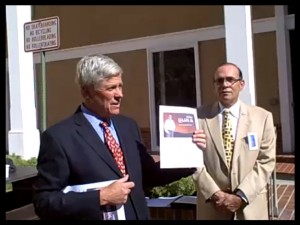 And yet, leading Democrats refused to comment one way or another on Block because they were so afraid it would dissipate Obama’s momentum. A few brazen Democrats began to actively campaign for the Green candidate, risking expulsion from the party.
And yet, leading Democrats refused to comment one way or another on Block because they were so afraid it would dissipate Obama’s momentum. A few brazen Democrats began to actively campaign for the Green candidate, risking expulsion from the party.
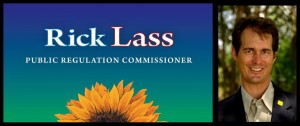 But Rick Lass, the green party candidate, was also flawed. First, he was from Michigan and New Mexico voters naturally prejudiced against outsiders. More importantly, Rick Lass once had been arrested for a domestic disturbance. He was surprisingly open about it in interviews. There had been no allegations of violence, but that didn’t stop Jerome Block Jr.’s father from smearing Rick Lass as a woman beater.
But Rick Lass, the green party candidate, was also flawed. First, he was from Michigan and New Mexico voters naturally prejudiced against outsiders. More importantly, Rick Lass once had been arrested for a domestic disturbance. He was surprisingly open about it in interviews. There had been no allegations of violence, but that didn’t stop Jerome Block Jr.’s father from smearing Rick Lass as a woman beater.
It worked. I’d ask about the race and people would shrug off Block’s problems. They’d rather elect a lying, thieving, dead-beat native son than a girlfriend-beating carpet-bagger.
Actually, those were just the people who’d heard about the race. Most people either only recognized his family’s name, or the big D beside it.
On the night of the election, everyone at our watch party celebrated as the Republican grip on America came to an end. I stumbled home seething with frustration. Jerome Block Jr. won with 56 percent of the vote. He was the chosen candidate of almost 100,000 New Mexicans.
I stopped by Rick Lass’ election party at a brewery down the street from my apartment. Pretty much everyone had gone home. Lass was sitting at the bar, a little drunk, with a sad-clown expression on his face as the TV replayed clips from Obama’s acceptance speech. We didn’t say much. He quit politics after that.
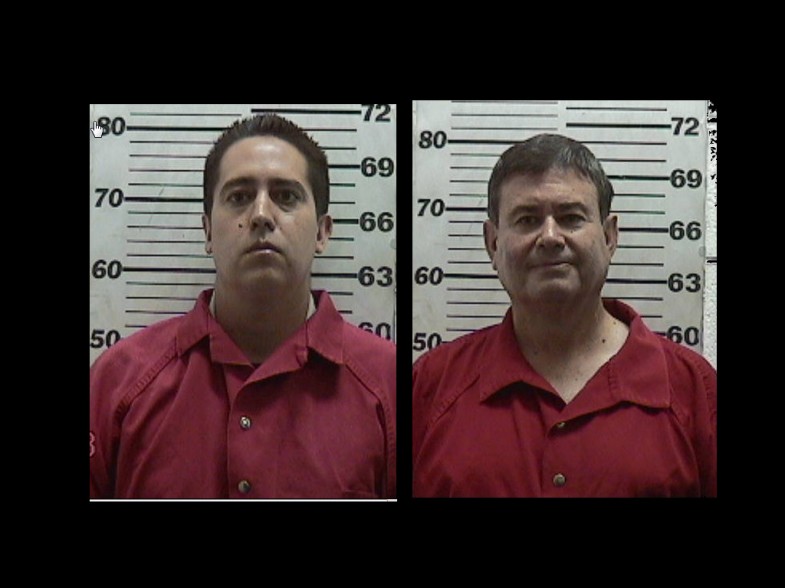 Elections move quickly, but justice drags slowly. The attorney general eventually indicted Block and his father on a long list of felony charges. Block refused to resign the $90,000-a-year job while he awaited trial. Months passed and I moved to San Diego.
Elections move quickly, but justice drags slowly. The attorney general eventually indicted Block and his father on a long list of felony charges. Block refused to resign the $90,000-a-year job while he awaited trial. Months passed and I moved to San Diego.
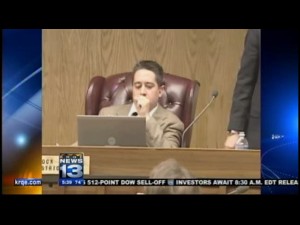 One would have expected Jerome Block Jr. to keep his nose clean as he assumed office. After all, there were a hundred microscopes trained on his every move. But no.
One would have expected Jerome Block Jr. to keep his nose clean as he assumed office. After all, there were a hundred microscopes trained on his every move. But no.
A television station discovered Block had racked up more than $8,000 in fraudulent charges on government-issued credit cards that were supposed to be used only for gasoline. 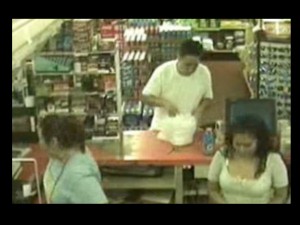 It was dubbed “Chimichanga-gate,†because that was one of many purchases alleged in a search warrant affidavit.
It was dubbed “Chimichanga-gate,†because that was one of many purchases alleged in a search warrant affidavit.
On top of that, Block was accused of car theft by an auto dealership after he took a Honda Accord on a test drive and never came back.
Almost exactly a year ago, Jerome Block Jr. finally resigned. He copped a plea in exchange for probation, and the charges were dropped against his father. Block blamed it all on drug addiction.
They keep giving Jerome Block Jr. second chances. Every time I look him up online, he’s got a new mugshot for a probation violation. One time, he was caught text messaging with a teenage girl. She asked if he could hook her up with a certain prescription drug. Block texted back, “Yes.â€
Of course he did.
When we think of political scoundrels, Jerome Block Jr.’s name should come to mind, but we also should be thinking about ourselves, the voters, the press, the political parties. Maybe Democracy itself should approach the podium and apologize.
But not resign. Never resign. Because even after all that, I still believe, the worst scumbag we elect is better than any ruler we don’t.
Just please, for Block’s sake, read the news before you vote this year.
